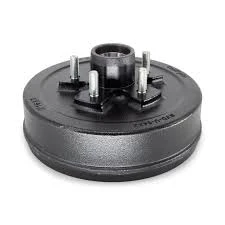rear drum brakes overheating
Understanding Rear Drum Brake Overheating and Its Solutions
Rear drum brakes play a crucial role in the overall braking system of a vehicle, especially in those with a rear-wheel-drive configuration. However, one of the most common issues that can plague rear drum brakes is overheating. This phenomenon not only affects braking efficiency but can also lead to significant safety risks and expensive repairs. In this article, we will explore the causes of rear drum brake overheating, its symptoms, potential consequences, and solutions to mitigate this issue.
Causes of Rear Drum Brake Overheating
1. Excessive Brake Use Frequent and heavy braking, especially when descending steep hills, can lead to brake overheating. The more the brakes are applied, the more heat they generate. If a driver relies heavily on the rear brakes, this is particularly concerning, as the drums have limited capacity to dissipate heat.
2. Improperly Adjusted Brakes Drum brakes should be adjusted correctly to ensure proper contact between the brake shoes and the drum. If the brake shoes are too far from the drum, the driver may inadvertently push the pedal harder, generating excessive heat due to increased friction.
3. Worn Components Over time, brake components such as shoes, drums, and springs can wear down. Worn-out parts can lead to decreased efficiency and increased friction, which contributes to overheating.
4. Poor Quality Brake Parts The quality of the brake components is paramount. Low-quality brake shoes and drums can lead to poor thermal management, causing overheating during normal operation.
5. Contaminants Oil, grease, or brake fluid leaks onto the drum can drastically reduce the friction coefficient between the brake shoes and drum surface, leading to overheating due to reduced braking efficiency.
6. Inadequate Cooling Unlike disc brakes, drum brakes can trap heat because of their enclosed design. In high-demand situations—such as driving in stop-and-go traffic or during aggressive driving—this can lead to rapid heat buildup.
Symptoms of Rear Drum Brake Overheating
Recognizing the signs of overheating drum brakes early can prevent more severe issues down the line. Common symptoms include
- Fading Brakes If the braking power noticeably decreases after repeated use, it may indicate overheating
. - Burning Smell A strong burning odor, often similar to burnt rubber, could signify overheated brakes.rear drum brakes overheating

- Temperature Sensitivity If the brakes feel excessively hot to the touch, they may be overheating.
- Unusual Sounds Any squeaking, grinding, or popping noises when applying the brakes can indicate issues with the drum or shoes.
- Vibration If there’s a noticeable vibration in the brake pedal during application, it might be due to warped drums from excessive heat.
Consequences of Ignoring Overheating
Failing to address overheating rear drum brakes can lead to several serious issues. Overheating can cause the brake drum to warp, leading to poor braking performance and possibly requiring a replacement. It can also result in brake fade, increasing stopping distances and putting the driver and passengers at risk. In extreme cases, overheating can lead to complete brake failure.
Solutions to Mitigate Overheating
1. Regular Maintenance Routine inspections and maintenance of the braking system, including checking the condition of brake components and adjusting them as necessary, can help prevent overheating.
2. Quality Components Investing in high-quality brake parts can enhance performance and thermal management, reducing the risk of overheating.
3. Driving Habits Being mindful of braking techniques, especially during long descents or in heavy traffic, can minimize the risk of overheating. Anticipating stops and coasting when possible, rather than continuously applying the brakes, can be helpful.
4. Brake Cooling Systems For those who frequently drive in demanding conditions, considering aftermarket cooling systems or vented drums can aid in better heat dissipation.
5. Professional Inspection If overheating is suspected, a professional inspection should be sought immediately. A mechanic can diagnose underlying issues and suggest necessary repairs.
In conclusion, rear drum brake overheating is a significant concern that can compromise vehicle safety and performance. By understanding its causes, recognizing the symptoms, and implementing preventative measures, drivers can ensure their braking systems remain effective and reliable. Prioritizing brake maintenance and adopting proper driving habits can go a long way in avoiding the pitfalls of brake overheating.
-
The Power and Reliability of Brake DrumsსიახლეებიAug.27,2025
-
The High-Quality Truck Brake DrumsსიახლეებიAug.27,2025
-
Quality Brake Drums for Reliable PerformanceსიახლეებიAug.27,2025
-
Get the Quality Semi Trailer Brake Drums for Your FleetსიახლეებიAug.27,2025
-
Everything You Need to Know About Brake DrumsსიახლეებიAug.27,2025
-
Enhance Your Vehicle's Performance with Reliable Brake DrumsსიახლეებიAug.27,2025
-
Truck Drum Brake Spring Replacement ProcedureსიახლეებიAug.22,2025


